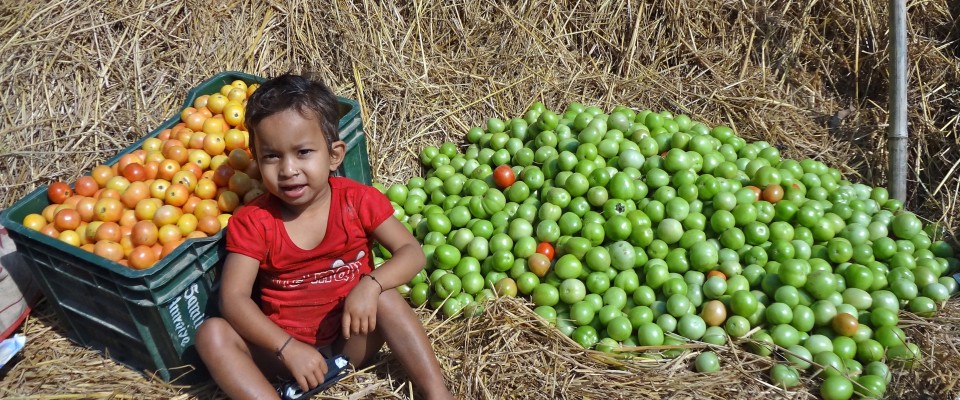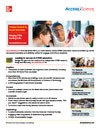Food insecurity—when people lack reliable access to enough nutritious and affordable food—is predicted to increase significantly over the next two decades. Extreme events caused by climate change, human conflicts, and pest and disease outbreaks are projected to drive this increase. Although individual problems relating to these events have been studied, researchers have noted an overall lack of cohesiveness in considering these problems and their potential solutions in combination. For example, an abundance of research has examined the effects of climate change on crop yield, but not on how these effects subsequently impact supply chains. In response to this knowledge gap, an international team of researchers has newly conducted a study in which they asked 69 food system experts, ranging from academics to leaders of government and non-governmental organizations in a variety of fields, to identify the most serious threats to food security for the next two decades. The researchers further asked how these threats should be addressed as part of a horizon scan and priority-setting exercise activity. Through the expert panel, 39 distinct threats were identified. All these threats were then presented to each expert, who subsequently ranked the threats based on (1) their impact on food security and (2) probability of happening. The goal of this exercise was to identify priorities for researchers and funders who are in positions to address global food security issues moving forward. See also: Agricultural soil and crop practices; Food manufacturing; Food preservation; Food processing; Global climate change; Probability; Supply chain management

The major threats gleaned from the expert panel were grouped into three main categories: (1) compounding events and cascading events, (2) vulnerability and adaptive capacity, and (3) cooperation and conflict. Taking these categories in turn, compounding events and cascading events consist of global events that can lead to future events through correlation. Examples include heat waves and droughts in Sub-Saharan Africa in relation to the opposite monsoon weather patterns in Asia, and the relationship between changes in El Niño Southern Oscillation and Northern Oscillation and Rossby Waves. Vulnerability and adaptive capacity describes events that may impact the ability of communities to adapt to challenges. For instance, population growth has caused increased water demand, which contributes to less access to clean water, the depletion of groundwater, and less sustainable irrigation practices. Other examples include income reversals for members of low-income communities in addition to price spikes, as well as an increase in industrialization leading toward less managed crop and livestock biodiversity. Cooperation and conflict events can undermine the ability of nations and the world as a whole to adapt to extreme events. Examples of these primarily human conflicts are terrorism, civil unrest, armed conflict, and political instability. In total, about half of the world’s hungry population lives in conflict regions. Other concerns in this third category include migration, displacement, and trade barriers. See also: Drought; El Niño; Groundwater hydrology; Industrial meteorology; Irrigation (agriculture); Monsoon meteorology; Ocean waves; Sustainability
As for potential solutions suggested by the panel, answers were grouped into the following categories: (1) better maps and predictions, (2) farm-level interventions, and (3) food system transformation. Given a lack of data availability with only the Integrated Food Security Phase Classification—a standardized scale from 1 to 5 used for measuring food security—to depend on, better maps and predictions were ranked as a priority plan of action. Farm-level interventions take into consideration that many food producers (farmers, hunters, herders, and fishers) are themselves food insecure and can contribute to further food insecurity. Problems related to food system transformation are more difficult to address, the study said, but are being explored by institutions such as the Committee on World Food Security at the United Nations and the International Panel of Experts on Sustainable Food Systems (IPES-Food), a non-profit organization based in Brussels, Belgium. Overall, the study encourages research teams and policymakers to better understand the connections between threats to food security and not develop solutions to these threats in isolation. See also: Agricultural science (animal); Agricultural science (plant); Fisheries ecology; Map design; Weather forecasting and prediction





